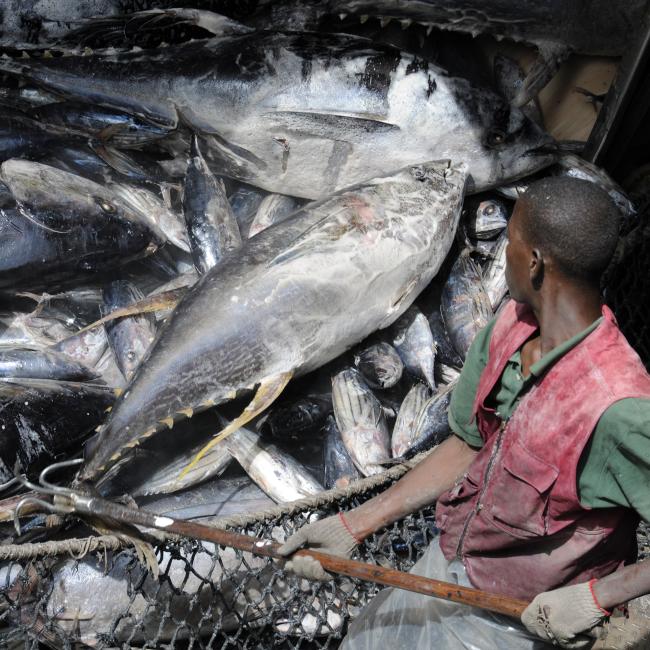The long-term conservation and sustainable use of marine resources requires a comprehensive management framework. This framework must be supported by an effective compliance regime that is tailored to the context in which it operates. The term compliance describes the level of conformity with legal obligations.
In fisheries, the optimal level of compliance is that which holds the level of non-compliance at an acceptable level, which can be maintained at a reasonable cost while not compromising the integrity of the fisheries management framework or ecological sustainability and ensuring ongoing social licence and legitimacy.
To achieve optimal levels of compliance, compliance actions and responses need to be targeted to ensure they are most effectively changing behaviours and promoting compliance. These actions can range from advisory and extension (awareness and education) through to deterrence and enforcement (prosecution and the application of sanctions).
These diverse responses are critical to achieving the desired outcome of the compliance regime, which is to encourage and ensure compliance with legal obligations.
Individuals will generally comply with rules if they understand what the rule is, and why it is important. However there remains a minority that will generally not comply with the rules, despite having this understanding. Compliance is therefore best achieved through the application of activities that support and promote voluntary compliance by the largest majority possible, balanced with effective and consistently applied enforcement mechanisms that target the minority that choose not to comply. Enforcement action is expensive and resource intensive, so promoting and encouraging voluntary compliance is the most cost-effective means of compliance delivery. Compliance, deterrence and enforcement are well established concepts, and they are broadly applied in a national context. However, the understanding of these concepts and their application in regional and international fisheries is often lacking.
In fisheries, two concepts have been adopted – Monitoring, Control and Surveillance (MCS) and Illegal, Unregulated and Unreported (IUU) fishing. MCS was a term developed by the FAO in 1981 and includes three separate components.
Monitoring is the continuous requirement for the measurement of fishing effort characteristics and resource yields involving the collection, measurement and analysis of fishing activity including, but not limited to, catch, species composition, fishing effort, bycatch, discards and area of operation.
Control is the regulatory framework under which fishing activities may be conducted and provide the basis for which fisheries management arrangements, via MCS, are implemented.
Surveillance is the degree and types of observations required to maintain compliance with the regulatory framework imposed on fishing activities.
MCS describes the tools that we use to implement marine management rules and ensure we monitor and ensure compliance with these rules. MCS can be divided, simplistically, into measures implemented before, during and after fishing. The different components of MCS are not implemented in isolation – each form an integral part of a whole that needs to be fit-for-purpose and developed and implemented strategically. MCS regimes must be developed to respond to fisheries management and conservation frameworks and strive to ensure compliance with these frameworks.
MCS and enforcement are often misunderstood and used interchangeably. However, they are distinct terms that broadly describe different tools and activities that can be used to identify, deter and respond to non-compliance. Rather than focusing on the tools and activities that can be used, it is more effective to focus on the objective that the use of these tools and activities seeks. This is to maximise the level of compliance with the established rules.
IUU fishing is used to broadly describe fishing activities that contravene or disregard national, regional or international fisheries legal frameworks or to describe a lack of regulation or control in fisheries. The term covers a wide variety of fishing activities and reflects three distinct and separate, sometimes overlapping components; illegal, unreported and unregulated.
While the term IUU fishing is broadly used and widely accepted, IUU fishing is just another way to describe non-compliance with relevant legal obligations, be they national, regional or international obligations. But fisheries-related offences are quite diverse and complex and often do not fit neatly within a specific IUU component. A focus on IUU can lead to all offences being aggregated under this single heading or, at best, clustered into the different offence types or groupings. But this does not consider the specific circumstances in which all offending occurs and what may be motivating this. This can cause MCS practitioners to focus on the symptoms of a problem, rather than to identify the root cause. It is only in understanding the root cause, that appropriate compliance responses can be developed. So it is more effective for compliance responses to be targeted to the nature and severity of the specific offence.
The IMCS Network seeks to promote a discussion around these key concepts and highlight that MCS interventions should be viewed as effective opportunities to change behaviour. Compliance responses must be targeted towards the types of non-compliance and the related behaviours. Detrimental compliance outcomes will generally be realised where repeat offenders are met with a continued advisory or educational response. Similarly, if those who are willing to and trying to comply are met with an immediate enforcement response, then this may cause them to question the point in trying to comply at all. Inappropriate responses and activities can be counterproductive to maximising overall compliance by encouraging repeat offenders (due to a lack of consequences) and disillusioning or discouraging those who would otherwise willingly comply.

